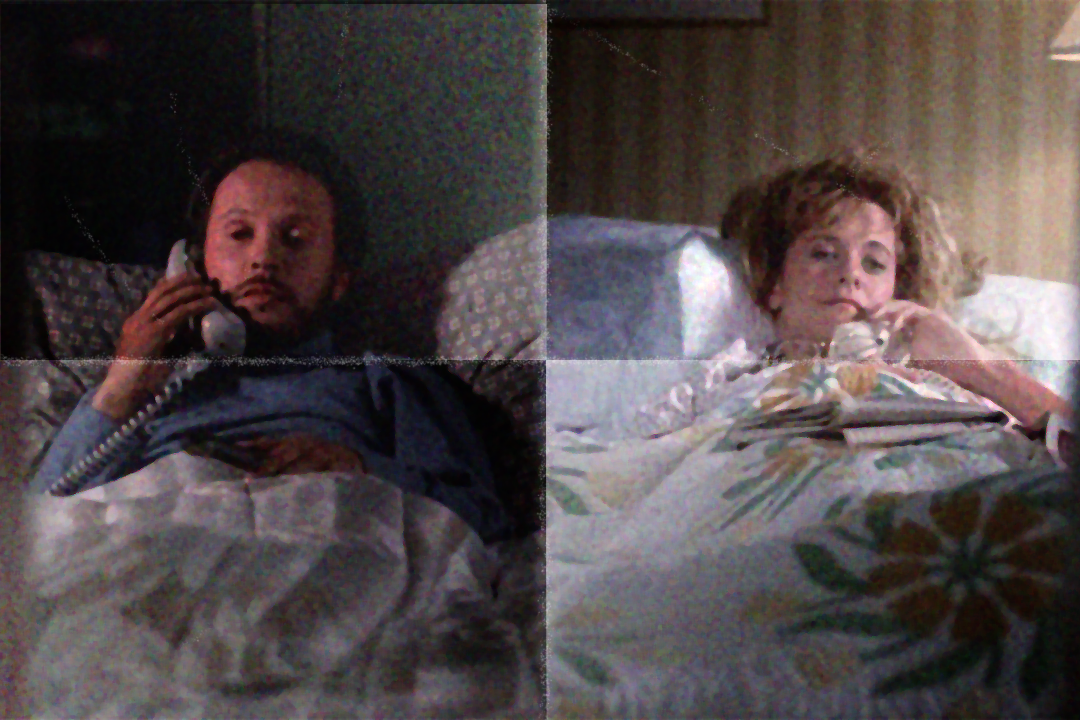'Hit Man' is all about romanticizing acting, and it's oh-so sexy
‘Hit Man’ is all about romanticizing acting, and it’s oh-so sexy
Feature art by Joaquin Prudente
At the end of Quentin Tarantino’s Once Upon A Time in Hollywood, Leonardo DiCaprio’s Rick Dalton, a has-been actor at the tail end of his career, saves the day. He brings out a flamethrower, a prop from his golden years, and points it at the more than mildly bruised and bloodied — recently minted Palme d’Or winner — Mikey Madison.
Tarantino strives to make his actors take on heroic edifices, mixing a dose of fantasy with reality. Dalton turns his drunken and obsolete self into a Western hero, vainglorious as they may come. He saves Sharon Tate from the murderous hippies and, by extension, the very soul and essence of Hollywood.
Acting, as self-flagellating yet constructively benign as it may seem, saves lives. And though it may seem hyperbolic in Tarantino’s terms, there is a certain level of romanticism to acting in Hit Man that only Richard Linklater can do.
The Before trilogy director uses a deceptively simple yet broadly appealing quirk that most movies have seem to have lost: the beautiful and dizzying ways a good performance can capture our worst impulses, our passionate desires, and our fantasies of saving the day.
Everything in life is all about performances. How we think about ourselves, more often than not, feel divorced from perception. Are cowboys really able to catch outlaws with their endless ammunition and gallivanting horses? Of course not. Are teachers really capable of changing themselves to become an undercover hitman — all the while looking like Glen Powell? This wouldn’t even get past the pitch meeting.
But the beauty of performance is that it is the great equalizer. It has the power to convince, to lower your guard, to buy into the lie that makes us feel warm and cozy about ourselves. There’s something primitively entertaining — and sexy — about seeing Glen Powell, as Gary Johnson, act like he isn’t the new chiseled Adonis of Hollywood. It’s like the boy-version of the ugly duckling makeover trope.
Powell is styled and brought to life at the start as if he were given Groucho Marx glasses and told to deny that he’s the reincarnation of Val Kilmer. But it most certainly works. And his transformation into the macho archetype more similar to his Top Gun: Maverick persona is where the novelty and fun of Hit Man lies.
Glen Powell must transform into Glen Powell, and he must do so by acting. There is no lower-hanging fruit to romanticize than that. In a scarcity of movie stars and star-led vehicles, it’s compelling to see an argument being made by Linklater that to create movie stars, it’s not so much about focusing on Powell himself, but about his chameleonic performance.
Glen Powell and Adria Arjona in Hit Man || Taken from IMDb, Courtesy Netflix
Audiences can recognize an actor being forced onto the “star” spotlight. When they don’t fit, it’s like fingernails on a chalkboard. Powell gets it right, tops it off with unadulterated chemistry with co-star Adria Arjona, and then shoots for the moon with an arsenal of masks that he puts on and off with ease.
There’s an arrival here that can’t be mistaken for shoddy studio agendas; it’s a rebirth of a forgotten and honestly underrated toxic trait we need to bring back in movies: “fuckbois.” They are — and I say this as someone with no relation to this characterization — undeniably hot and a perfect synthesis of moviemaking narcissism.
We’ve already drained the well of soft, misunderstood, and fragile antiheroes. We’ve had countless rom-coms with the dorky, socially inept, and misidentified loner. But if there’s ever been a more iconic union of screen and character, there’s no denying the cocky, swoon-worthy, film jocks that have given football players a bad rep.
Linklater and Powell, both credited as screenwriters, restore this shunned profile by uniquely presenting it as a “performance.” Powell isn’t a “fuckboi.” He’s a nerd acting like one.
And because it’s all acting, it’s easier for us to digest that, “Hey, we might actually like this douchebag?” In reality, Powell has always had this on-screen aura, so why were we duped into thinking he isn’t the guy he’s always been?
Because he’s sexy, duh. Hit Man is a smokescreen meant to lift an instinctual audience response, a muscle memory of sorts. We’re drawn to people who pretend. Who can live an escapist fantasy that we’d like to try some day. Even the script tells us from the get-go that hitmen are just a made-up phenomenon popularized by movies and television — yet it still compels us to believe them.
If the film does its job to convince you that Glen Powell, the masculine, can be Glen Powell, the cerebral, then we’re in the same boat as the many people Gary Johnson dupes into thinking hitmen actually exist in real life. We want movies that capture lies mixed with truth, and then we expect a catharsis from a reveal of truth.
The truth is that Gary Johnson, the sweet and innocent teacher, is actually a lot more Machiavellian and treacherous as it seems. But we buy it because the catharsis that follows is that a racist, misogynistic pig loses, and the hero ultimately gets the girl. It’s the same principle as Rick Dalton and Cliff Booth kicking the shit out of the Manson family and gaining cinematic retribution.
Acting, after all, turns out to save lives — and create new ones (literally, in Hit Man’s case).
Hit Man is currently streaming on Netflix.


















